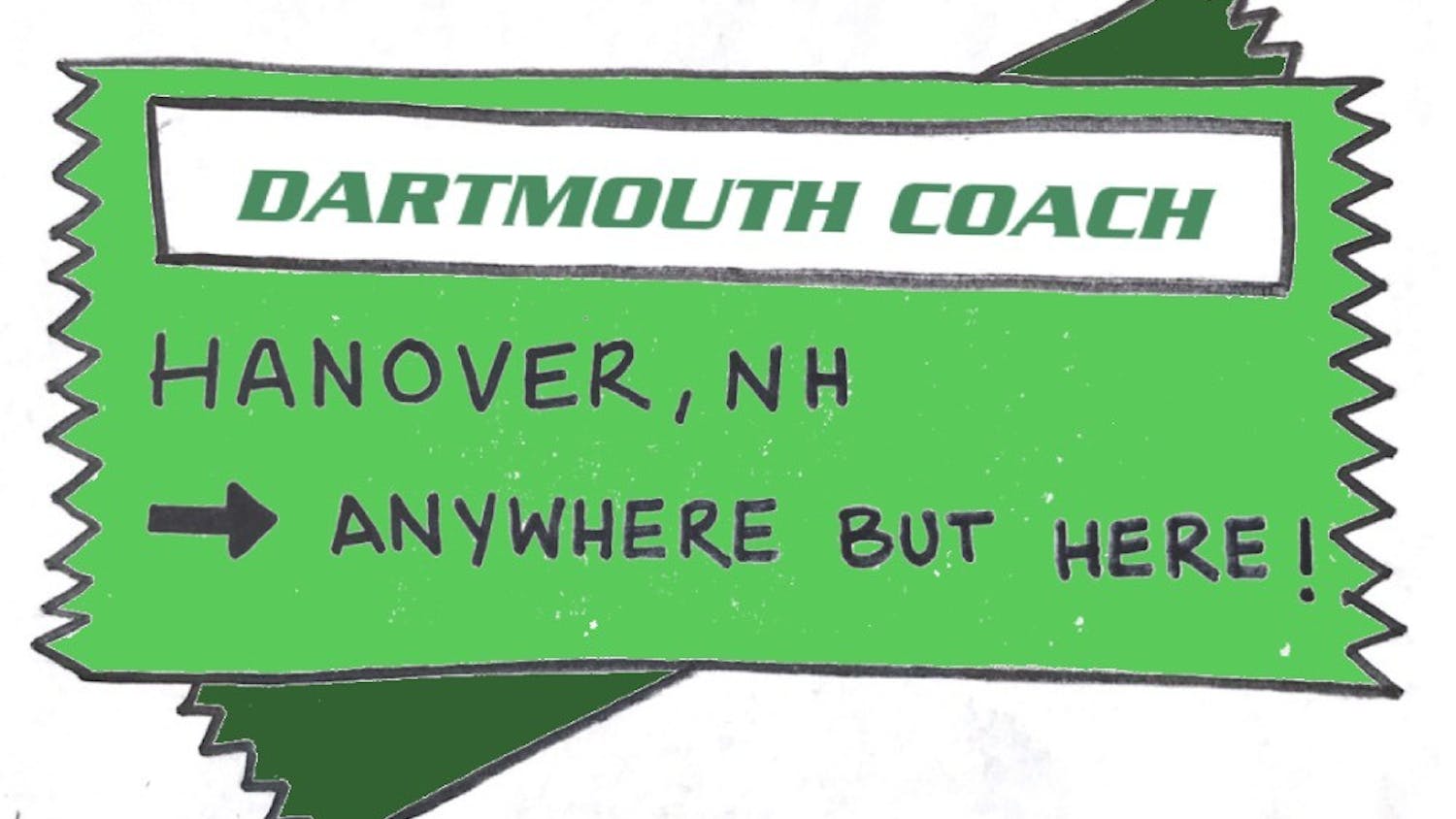It’s a little early in my academic career for me to be writing a reflection piece about choosing my major. I’ve only been a Dartmouth student for two-and-a-half terms, and I just submitted my first D-Plan. But strangely, it feels like I’ve been in the process of choosing my major for years.
For context, I’m a religion major modified with art history on the pre-med track. I’m also a pastor’s kid who is taking a break from formal religion, so this combination is incongruous for a number of reasons. I left for college fully intending to become a cognitive science major and spend my time figuring out the mysteries of human behavior — I even wrote my Dartmouth application essay about it. Now, I’m a religion major who recently discovered a passion for art history.
It’s difficult to discern what exactly has changed in the past year. Being at Dartmouth has exposed me to entire fields of study that I couldn’t access in high school, but that’s just part of it. My art history classes have been a breath of intellectual fresh air, and my religion classes have allowed me to continue on a journey of personal religious deconstruction that started years ago.
Finally, as strange as it sounds, I have had to overcome my fear of being well-rounded.
For a long time, I thought that I needed to be uniquely exceptional in one field in order to do anything of consequence. At a school like Dartmouth, where you’re surrounded by students who excel in incredibly niche and impressive ways, this can feel like an entrance requirement. Going into my first year of college, I was afraid that I wouldn’t stand out among the intense STEM students that tend to populate pre-med courses.
As it turns out, I was right. I think I spoke out loud once during CHEM 5, “General Chemistry,” last term. Throughout the fall and winter terms I felt most at home speaking up during discussion sections for my humanities classes, and I loved the religion and art history courses that I’d added on a whim during course selection.
I knew that I still wanted to be pre-med, but suddenly it didn’t feel right to focus all of my attention on one academic discipline when Dartmouth had so much else to offer. I don’t intend to detract from the talent, dedication and skill of my peers who go all-in for their respective fields. These students are some of my best friends and biggest inspirations, but for me, choosing my major was also a process of letting go.
I had to relinquish the idea of myself as a one-dimensional STEM student in order to follow the academic path I found myself wandering down freshman fall. Although this meant the end of one vision of academic success, I think it also opened up a new one.
As I see it now, academic excellence looks like allowing curiosity to take me to unexpected places and to return me to familiar ones. Discovering art history was a joyful process that happened almost on accident: The exclamation point in the title of my first art history class — ARTH 63.13, “Bad Art!” — was literally the reason I chose it during add/drop. I’m just starting to become conversational in the language of art history, and learning to look at the world through its art has been an opportunity for intellectual growth and enjoyment that I never saw coming.
My choice to major in religion was much longer in the making. Growing up as a pastor’s kid meant that I was intimately familiar with many aspects of western Christianity, and as the saying goes, sometimes familiarity breeds contempt. Throughout high school and into college, I found myself laden down by questions that didn’t have answers and disappointment with the church’s paralysis on LGBTQ issues.
However, if higher education has taught me anything, it’s that good things happen when I let curiosity overpower disdain. In high school, I started the process of unpacking my Christian beliefs: what they were, if I believed in them and why. Once I got to college, I had the opportunity to ditch religion for good, but instead I found myself returning to it.
The religion major has been a chance for me to reimagine religion intellectually, to examine its flaws and intricacies and the powerful ways religious narratives have shaped the world we live in. Much like the rest of my major selection process, my return to religion was both a loss and a new beginning.
I’ve loosened my once-tight hold on the Christian principles that guided my life growing up, and in some ways, that’s a real loss. However, in the space left behind, I’ve found a whole new way of thinking about the world, with a wider lens, a critical edge and room for art.
In a way, I think this is part of the quintessential college experience. We’re all in this crazy four years where we finally have to figure things out for ourselves. Choosing a major is undoubtedly part of this process, and it looks different for everyone.
For me, the process of choosing a major has been a departure from my idea of excellence and the foundational beliefs of my childhood. It’s also the beginning of a strange but fitting return, and I’ve found incredible value in the ways Dartmouth is changing me on the journey back.
Caris is a '23 from Long Beach, CA and is majoring in religion modified with art history. When not editing stories for the Mirror, you can find her playing club soccer, snowboarding at the Skiway or sipping coffee in Sherman Art Library. After college, she plans on attending graduate school in religion.




